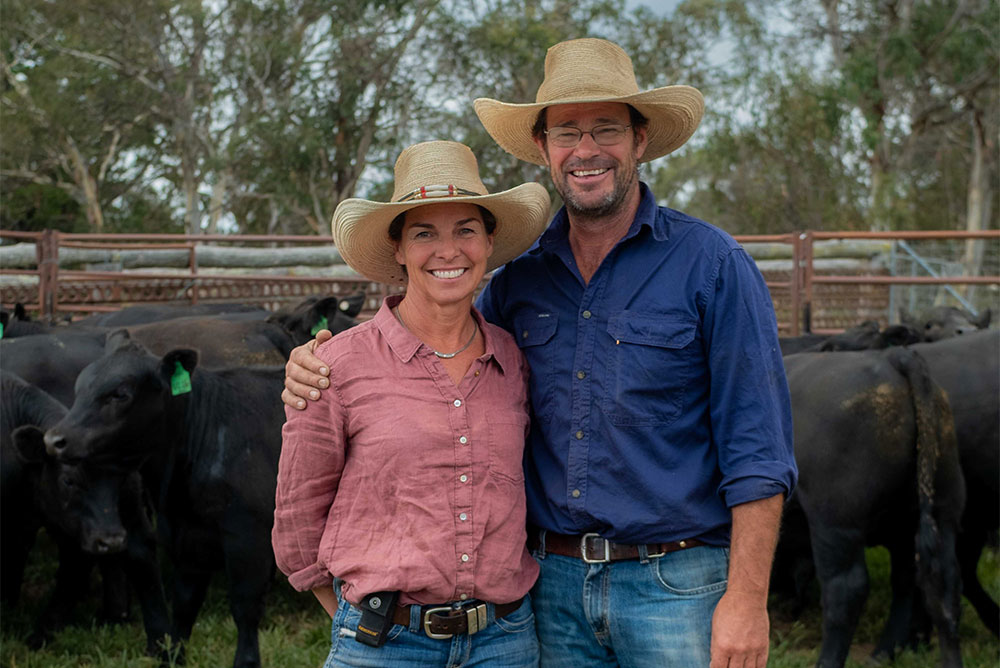Climate change – no one has more at stake than farmers

The majority of farmers are investing their own time and money to make their farms more sustainable, a new Rural Aid report has found.
Australia’s most trusted rural charity recently surveyed its registered farmers, with 62% of the survey respondents confirming they were currently undertaking sustainability and resilience practices.
Fifth-generation farmer, and Rural Aid board member, Erica Halliday, said it’s a figure that might challenge a few stereotypes.
“Sometimes as farmers we feel we’re being blamed for climate change, when no one has more at stake than farmers,” she said.
“I don’t know a single farmer that isn’t trying to do the best by the land. We’re living and learning, but if anyone’s going to make a real difference, it’s actually going to be us farmers,” the Walcha farmer said.
It’s a sentiment backed up by Rural Aid CEO John Warlters, who said no one feels the impact of a variable climate more than farmers.
“Our farmers are the building blocks of what happens for us every single day because their efforts and their energies translate to food on the plate.
“We’ve seen a real change in the nature of requests for help from Rural Aid, and a lot of it is driven from what has been occurring with our seasons as disaster events become more frequent and severe.
Erica and her husband Stuart are renowned as some of Australia’s top Angus seedstock breeders.
The environment, and leaving the land in a better state for future generations, is something Erica said all farmers strongly believe in.
“We’re working on cattle for the future that have less methane emissions both genetically and through management, as well as meat quality, and efficiency, and making sure they’ve got a kind temperament,” Erica said.
With Rural Aid’s Mates Day approaching on 20 March, John said they were encouraging people from across the country to understand the fundamental role agriculture plays in sustaining our communities and give, where they can, to help farmers when conditions move beyond their control.
“With every meal, we’re typically dining on amazing food grown by an Aussie farmer. And when we go into the supermarket, it’s the same story – just about everything on shelves is the output of what’s occurred on a farm,” John said.
Erica said Mates Day was a great opportunity to donate to the work Rural Aid is doing to support farmers through challenging times.
“Sometimes, particularly in those stressful periods, it can get very lonely and very isolating being a farmer,” she said.
“Mates Day is a really important time for people to acknowledge and appreciate farmers and what they do. Because when you get that steak on your plate, you don’t realise it’s taken five years and the trials and tribulations, to get it there.”
To support Rural Aid’s Mates Day campaign or to make a donation, visit matesday.ruralaid.org.au All donations received will contribute to the important work Rural Aid is undertaking in rural and regional communities and supporting Australian farmers.
Click here to watch Stuart and Erica’s story and learn more about some of the other practices they are undertaking on their farm to help mitigate climate risks.
Media enquiries:
Kate Scott
0438 389 092
kate.scott@bluehillpr.com.au
Stacey Wordsworth
0438 394 371
stacey.wordsworth@bluehillpr.com.au
About Rural Aid
Rural Aid is Australia’s most trusted rural charity. We stand with our farmers when they need us most. Rural Aid provides critical support to farmers affected by natural disaster through financial, wellbeing and fodder assistance. Rural Aid’s community programs help create more sustainable communities by building stronger futures for all Australian farmers. Find out more at www.ruralaid.org.au
